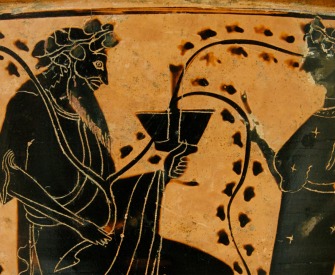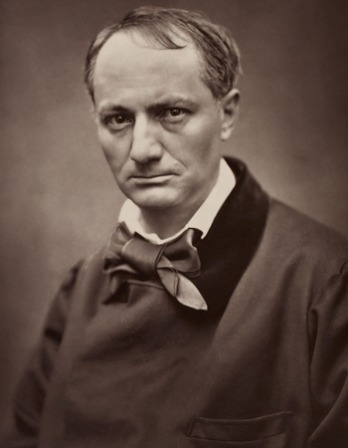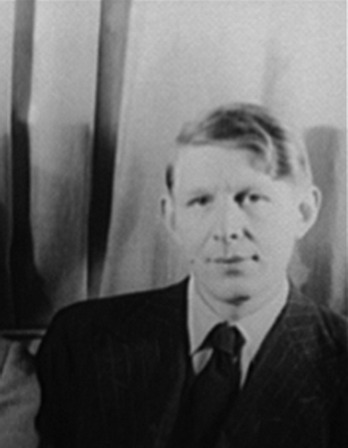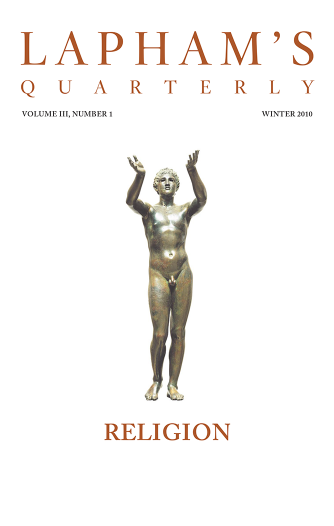Without music to decorate it, time is just a bunch of boring production deadlines or dates by which bills must be paid.
—Frank Zappa, 1989The Incarnate Now Is Supreme
Poetry is the voice of the far future or of the magnificent past.
It seems when we hear a skylark singing as if sound were running forward into the future, running so fast and utterly without consideration, straight on into futurity. And when we hear a nightingale, we hear the pause and the rich, piercing rhythm of recollection, the perfected past. The lark may sound sad, but with the lovely lapsing sadness that is almost a swoon of hope. The nightingale’s triumph is a paean, but a death paean.
So it is with poetry. Poetry is, as a rule, either the voice of the far future, exquisite and ethereal, or it is the voice of the past—rich, magnificent. When the Greeks heard the Iliad and the Odyssey, they heard their own past calling in their hearts, as men far inland sometimes hear the sea and fall weak with powerful, wonderful regret, nostalgia; or else their own future rippled its time beats through their blood, as they followed the painful, glamorous progress of the Ithacan. This was Homer to the Greeks: their past, splendid with battles won and death achieved, and their future, the magic wandering of Ulysses through the unknown.
With us it is the same. Our birds sing on the horizons. They sing out of the blue, beyond us, or out of the quenched night. They sing at dawn and sunset. Only the poor, shrill, tame canaries whistle while we talk. The wild birds begin before we are awake, or as we drop into dimness, out of waking. Our poets sit by the gateways, some by the east, some by the west. As we arrive and as we go out, our hearts surge with response. But while we are in the midst of life, we do not hear them.
The poetry of the beginning and the poetry of the end must have that exquisite finality, perfection which belongs to all that is far off. It is in the realm of all that is perfect. It is of the nature of all that is complete and consummate. This completeness, this consummateness, the finality and the perfection are conveyed in exquisite form: the perfect symmetry, the rhythm which returns upon itself like a dance where the hands link and loosen and link for the supreme moment of the end. Perfected bygone moments, perfected moments in the glimmering futurity, these are the treasured gemlike lyrics of Shelley and Keats.
But there is another kind of poetry: the poetry of that which is at hand—the immediate present. In the immediate present there is no perfection, no consummation, nothing finished. The strands are all flying, quivering, intermingling into the web, the waters are shaking the moon. There is no round, consummate moon on the face of running water, nor on the face of the unfinished tide. There are no gems of the living plasm. The living plasm vibrates unspeakably, it inhales the future, it exhales the past, it is the quick of both, and yet it is neither. There is no plasmic finality, nothing crystal, permanent. If we try to fix the living tissue, as the biologists fix it with formation, we have only a hardened bit of the past, the bygone life under our observation.
Life, the ever present, knows no finality, no finished crystallization. The perfect rose is only a running flame, emerging and flowing off, and never in any sense at rest, static, finished. Herein lies its transcendent loveliness. The whole tide of all life and all time suddenly heaves, and appears before us as an apparition, a revelation. We look at the very white quick of nascent creation. A water lily heaves herself from the flood, looks round, gleams, and is gone. We have seen the incarnation, the quick of the ever-swirling flood. We have seen the invisible. We have seen, we have touched, we have partaken of the very substance of creative change, creative mutation. If you tell me about the lotus, tell me of nothing changeless or eternal. Tell me of the mystery of the inexhaustible, forever-unfolding creative spark. Tell me of the incarnate disclosure of the flux, mutation in blossom, laughter and decay perfectly open in their transit, nude in their movement before us.
Let me feel the mud and the heavens in my lotus. Let me feel the heavy, silting, sucking mud, the spinning of sky winds. Let me feel them both in purest contact, the nakedness of sucking weight, nakedly passing radiance. Give me nothing fixed, set, static. Don’t give me the infinite or the eternal: nothing of infinity, nothing of eternity. Give me the still, white seething, the incandescence and the coldness of the incarnate moment: the moment, the quick of all change and haste and opposition: the moment, the immediate present, the now. The immediate moment is not a drop of water running downstream. It is the source and issue, the bubbling up of the stream. Here, in this very instant moment, up bubbles the stream of time, out of the wells of futurity, flowing on to the oceans of the past. The source, the issue, the creative quick.
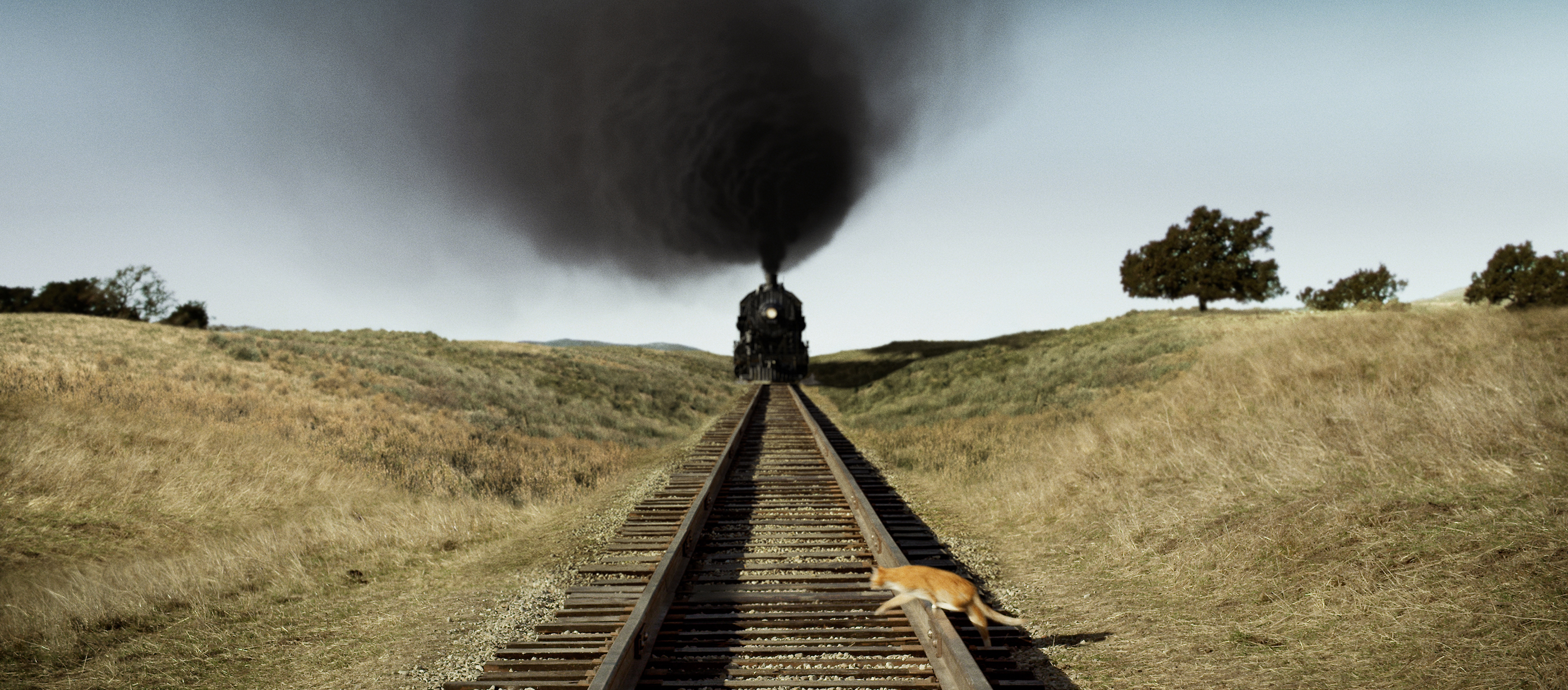
La Petite Mort Film Still #1, by Alex Prager, 2012. © Alex Prager, courtesy of the artist.
There is poetry of this immediate present, instant poetry, as well as poetry of the infinite past and the infinite future. The seething poetry of the incarnate now is supreme, beyond even the everlasting gems of the before and after. In its quivering momentaneity it surpasses the crystalline, pearl-hard jewels, the poems of the eternities. Do not ask for the qualities of the unfading timeless gems. Ask for the whiteness which is the seethe of mud, ask for that incipient putrescence which is the skies falling, ask for the never-pausing, never-ceasing life itself. There must be mutation, swifter than iridescence, haste, not rest, come-and-go, not fixity, inconclusiveness, immediacy, the quality of life itself, without denouement or close. There must be the rapid momentaneous association of things which meet and pass on the forever incalculable journey of creation: everything left in its own rapid, fluid relationship with the rest of things.

D.H. Lawrence
From the preface to New Poems. Toward the end of this preface to his fourth poetry collection, Lawrence wrote, “One great mystery of time is terra incognita to us: the instant…The quick of all time is the instant. The quick of all the universe, of all creation, is the incarnate, carnal self. Poetry gave us the clue: free verse: Whitman. Now we know.” He traveled widely in the 1920s and often wrote quickly, composing The Lost Girl in Sicily, Kangaroo in Australia, The Plumed Serpent in Mexico, and the first draft of Lady Chatterley’s Lover in Italy.
